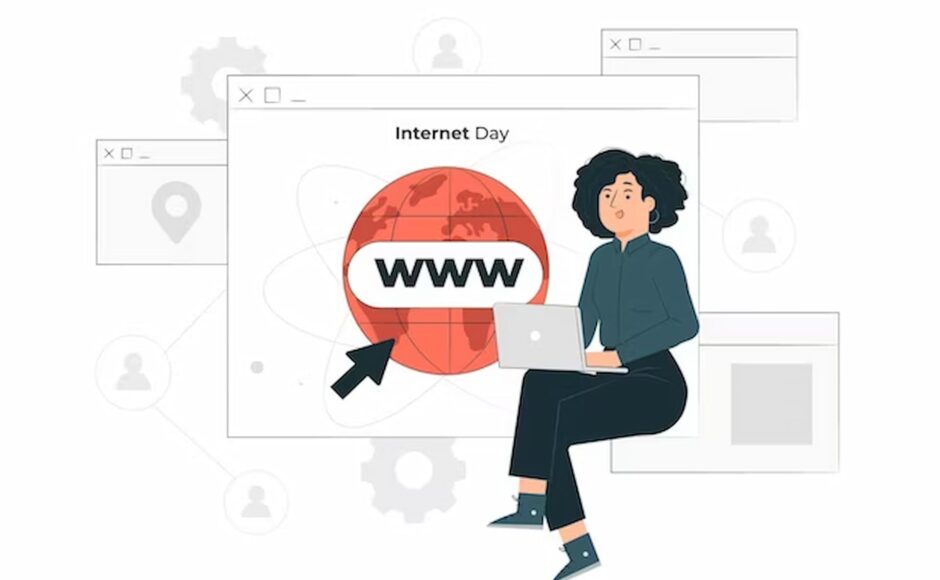In the online business world, website optimisation is critical to staying ahead. The Link extractor is a powerful tool that often goes unnoticed but can significantly impact. If you’ve ever wondered how to streamline your website’s performance, increase search engine visibility, and enhance user experience, you’re in the right place. This article describes how we will walk you through the ins and outs of using a URL for optimum website optimisation.
What Is A URL Extractor?
Before we delve into website optimisation, let’s start by understanding a Link extractor. A URL extractor is a tool designed to retrieve specific URLs from a given web page or a set of web pages. This process involves scanning a website’s content and extracting the uniform resource locators (URLs) embedded within it. Web Link extractors come in various forms, including online tools, browser extensions, and standalone software.
Link extractors serve many purposes, from data mining and content scraping to SEO analysis and link building. In the context of website optimisation, these tools play a crucial role in helping you understand the structure of your website, identify potential issues, and devise strategies for improvement.
1: Understanding The Basics Of URL Extraction
1.1 How URL Extractors Work
Link extractors employ algorithms to navigate through the HTML structure of a website and identify anchor tags containing links. These tools simulate a search engine spider’s process when crawling a website. By extracting URLs, you gain insights into your site’s internal and external link structure, allowing you to analyse the relationships between different pages.
1.2 Types Of URL Extractors
Various Link extractors cater to different needs and preferences. Some are browser-based extensions that provide a quick extraction of URLs visible on a specific page, while others are standalone programs capable of crawling an entire website. Choose the type that aligns with your optimisation goals and technical expertise.
2: SEO Optimization With Link Extractors
2.1 Analyzing Internal Link Structure
One of the primary advantages of using a link extractor is the ability to analyse your website’s internal link structure. Internal links are the connections between different pages within your site, and their organisation plays a vital role in search engine optimisation (SEO). A well-structured internal linking system enhances user navigation, distributes page authority, and improves your website’s overall SEO performance.
By extracting internal URLs, you can assess your site’s hierarchy and identify potential areas for improvement. Look for opportunities to create logical pathways between related content, ensuring users and search engine crawlers can navigate your site effortlessly.
2.2 Identifying Broken Links
Broken links can negatively impact user experience and harm your website’s SEO rankings. Link extractors come in handy for identifying and managing broken links efficiently. You can pinpoint any broken or redirected links by extracting all the URLs from your website and running them through a link checker. Once identified, take swift action to rectify these issues, ensuring a seamless browsing experience for your visitors and maintaining your site’s credibility in the eyes of search engines.
3: Content Scraping And Data Mining
3.1 Gathering Valuable Data
Link extractors are potent tools for content scraping and data mining, enabling you to gather valuable information from external websites. Whether conducting market research, monitoring competitor activity, or seeking inspiration for your content strategy, extracting URLs from relevant sources is the first step.
Use URL Extractor to compile a list of URLs from industry-specific websites, blogs, or forums. Analyse the extracted data to identify trending topics, keywords, and content gaps. This information can be a foundation for creating engaging, informative content that resonates with your target audience.
3.2 Ethical Considerations
While link extractors offer tremendous benefits for data gathering, it’s crucial to approach content scraping and data mining ethically. Respect the privacy and intellectual property rights of others, and always adhere to the terms of service of the websites you’re extracting data from. Exercise caution and ensure your data extraction activities comply with legal and ethical standards.
4: Link Building Strategies
4.1 External Link Opportunities
Link extractors are invaluable tools for identifying potential external link opportunities. You can discover potential partners, influencers, or authoritative sources by extracting URLs from relevant websites within your niche. Building external links from reputable sites can boost your website’s credibility and authority in the eyes of search engines, leading to improved rankings.
4.2 Outreach And Relationship Building
Once you’ve identified promising external URLs, the next step is outreach. Establishing relationships with other website owners, influencers, or industry experts can open doors for collaboration and link-building opportunities. Craft personalised and compelling outreach messages, emphasising the mutual benefits of collaboration. Whether it’s guest posting, co-authoring content, or participating in joint ventures, strategic link-building can significantly impact your website’s visibility and authority.
Conclusion
In the ever-evolving landscape of online business, staying ahead requires a multifaceted approach to website optimisation. Often overlooked but immensely powerful, link extractors offer unique tools to enhance your website’s performance, SEO rankings, and overall user experience.
By understanding the basics of URL extraction, leveraging these tools for SEO optimisation, utilising them for content scraping and data mining responsibly, and incorporating them into your link-building strategies, you can unlock the full potential of Link extractors. Remember to approach these tools ethically, respecting the privacy and rights of others in your quest for website optimisation.




